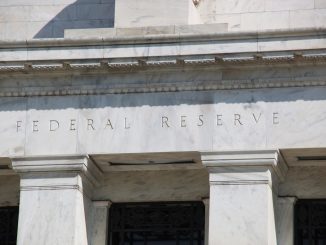Bloomberg Television’s Sara Eisen and Tom Keene sat down with Federal Reserve Bank of St. Louis President/CEO, James Bullard to discuss the Fed’s decision not to taper and said that a ‘small taper’ in October is possible, that he doesn’t want to see brinkmanship on debt, and insisted that the Fed still absolutely targets dual mandate.
Full Transcript:
SARA EISEN, BLOOMBERG NEWS: Well our top story of the week really after the surprise from the Federal Reserve this week, we one of the decision makers in the Federal Open Market Committee himself with us for the entire hour, James Bullard, the twelfth president of the Federal Reserve Bank of St. Louis, good to see you, Jim.
JAMES BULLARD, PRESIDENT, FEDERAL RESERVE BANK OF ST. LOUIS: Great to be here. Thanks for having me.
EISEN: So markets this week were set up for the start of tapering, or starting to rein in some of the quantitative easing. Does the Federal Reserve have a messaging problem?
BULLARD: I don’t think so. I think it was a good decision. We said that this was data dependent. It is data dependent and so I think that’s one message of this that comes out of this. I think a lot of people in markets had some kind of idea that this was some kind of straight line down to zero. And that is not the case. And the chairman has emphasized that over and over. So I’m a little dismayed at those in markets that are saying that they’re surprised by this.
EISEN: Well if –
BULLARD: When we came in, when we came into this June decision we said that we were going to – we told a story and the story was that the economy was going to improve in the second half of the year. And if we saw that improvement we would taper, but what actually happened was we got some weaker data and then that put the committee in a position where we can delay.
EISEN: Well speak more to the data. If you’re data dependent, what sort of picture has the data been painting for this economy? How fragile is the recovery?
BULLARD: I don’t think it’s that fragile, but if you look at tracking forecasts for GDP, they’re below two percent right now. For myself I was expecting –
TOM KEENE, BLOOMBERG NEWS: Right.
BULLARD: – the second half to be up around three percent or something like that. So it gives you a little bit of pause. Also the inflation numbers have been low, something I’ve been emphasizing.
KEENE: Let’s set up the hour for you, folks. This is wonderful, an entire hour exclusively with James Bullard of the St. Louis Fed. Talk about the Fed here. We’ll talk about St. Louis and then Michael McKee with an extended interview later on. I want to talk to you about Indiana University.
BULLARD: Excellent.
KEENE: You took your PhD there –
BULLARD: Yes.
KEENE: – a million years ago. You’ve been at the St. Louis Fed 23 years. Back then the Fed communicated with incense, and myrrh and semaphore flags. Is there too much transparency now? Do you sit there in St. Louis and go, would everyone shut up?
BULLARD: No. I think the transparency cat is out of the bag and we’re not going to go back to a situation where have the kind of smoke signals that sent in the ’80s or ’90s. I think that was probably not a good way to do business, even though that’s the way it was done at that time.
MICHAEL MCKEE, BLOOMBERG NEWS: You talked about the Fed chairman speaking over and over again about if the data – the Fed chairman didn’t speak after mid July. The vice chairman didn’t speak at all since the tapering talk began. So can you really say that markets got this wrong? Do you have a communications problem? Or do they have a listening problem?
BULLARD: No. I think there was Fed communication and the committee does get out and try to communicate as best we can. And I think one of the things that happened between the July meeting and this meeting was weaker data came in. And markets did ratchet back their expectations for tapering. We started talking about a smaller taper. And so one other challenge I would have for all of you is how much difference is there between zero and $10 billion.
KEENE: Then why didn’t they do – that’s the key question.
MCKEE: Well then no –
KEENE: Why didn’t they do a little bit instead of this zero sum game?
BULLARD: I think that was a borderline decision and the committee came down on the side of let’s why don’t we just wait. And I would say and for me anyway inflation is low. We can afford to be patient. We don’t have to hustle on it.
- Bulenox: Get 45% to 91% OFF ... Use Discount Code: UNO
- Risk Our Money Not Yours | Get 50% to 90% OFF ... Use Discount Code: MMBVBKSM
Disclaimer: This page contains affiliate links. If you choose to make a purchase after clicking a link, we may receive a commission at no additional cost to you. Thank you for your support!



Leave a Reply